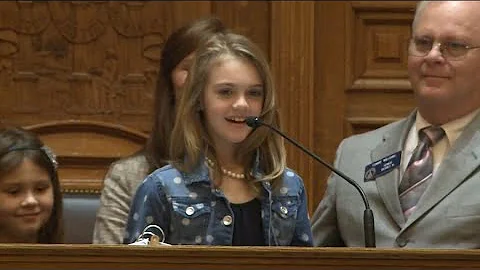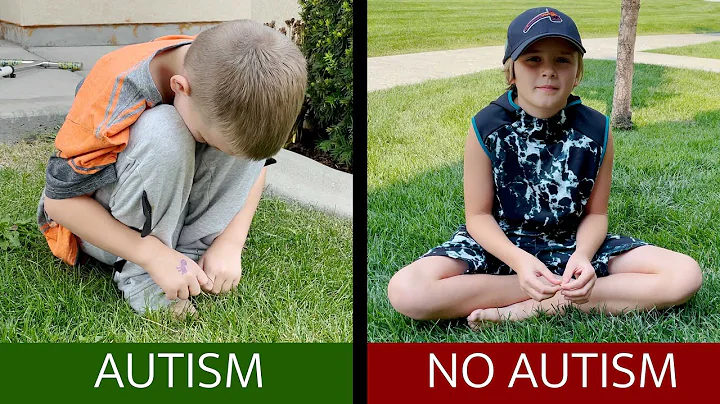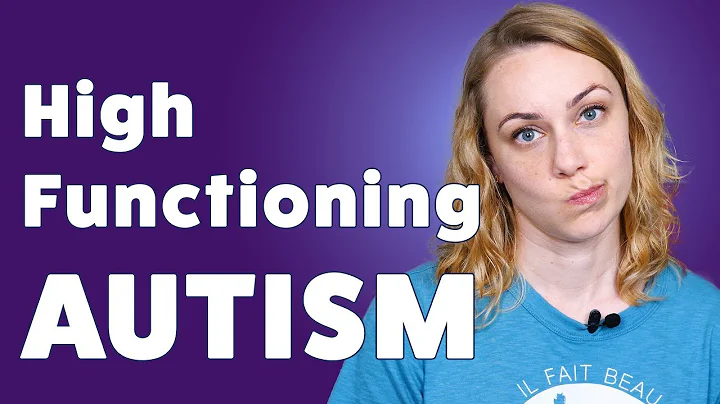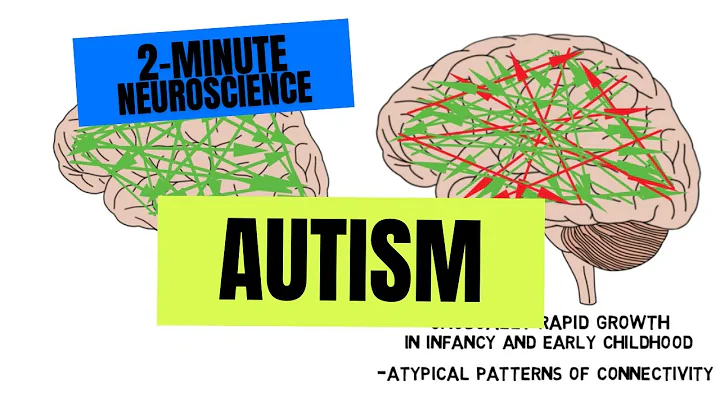suffering from autism is just a wrinkle in the makeup of human nature, and no one in this world is completely smooth.

As a non-fiction work, "A Different Pitch: The Story of Autism" tells the century-old history of autism with the rigor of reportage, from being exiled and forgotten to being accepted and supported.
The history of autism is a history of the struggle of psychiatrists and parents to save "children trapped in the body". It is also a history of changes in human society's understanding of human nature over the course of a century. It is a history of various differences. Tone has changed the history of blood and tears in global society and culture.
Over the past century, people's understanding of autism has gone through countless detours. Countless children and parents have suffered from the pain of not being understood. They have walked a rugged road that is more terrifying than death. The "refrigerator mother" The accusation once pushed these families into the abyss.
It is a mirror that reflects the darkness and light of human nature. The degree of acceptance of different tones represents the progress of our social development. Only by facing up to differences can we truly move forward.
Autism has been a mystery that has puzzled us for more than a century.
On September 28, 1942, in a letter to Donald's parents, American child psychiatrist Leon Kenner called their son's condition "autistic disorder of emotional contact" for the first time. This is about autism. earliest expression.
Around 1910, Bleuler used the term "introverted thinking" to describe this behavioral tendency. Donald is Kenner’s Case No. 1. This child, who was only 9 years old at the time, was called "the first prey of autism" by the industry and was the first child in the world to be diagnosed with autism.
Donald does not have any physical disabilities, but he has many quirks. Even slight changes in the surrounding environment will cause him to lose his temper. At the same time, he has an amazing memory. After seeing beads of different colors, he can make an identical bead without looking at it a second time.
Among all his quirks, the one that is most difficult for his parents to accept is that he is very indifferent to his parents' feelings, and the same is true for other relatives. Whatever normal meant, Donald's mother had to admit that her child was not quite normal.
Donald's parents took him to see a doctor, but the doctor said the only option was to send him to a mental hospital. In Donald's day, doctors would use the term "defective" to describe his condition, and the medical advice would be to send the child away.
Many scholars have proposed that the way to help these "people who can never create beneficial value" is to euthanize them. Mississippi, where Donald lives, has legislation that stipulates that people with intellectual disabilities must be sterilized.
Eugenics is popular all over the world. The Eugenics Manifesto - "The Heritage of the Great Race" written by New York lawyer Grant was regarded as the Bible by Hitler. Later, during his administration, tens of thousands of intellectually disabled Germans were killed. .
It is unknown how many people had autism before Donald, and their experiences have been lost. Because Donald was born in a wealthy family, thanks to the blessing of his family, Donald only stayed at the infectious disease prevention and control center for one year before being taken back home. After that, he successfully went to elementary school, middle school, and even entered college.
After graduation, Donald worked as a teller in the family bank. When greeting customers, he always used their bank account number instead of their name, but thanks to the protection of the family, he would not be fired no matter how unstable his work performance was.
In his spare time, Donald even learned to drive and play golf alone.When Donald was 36 years old, his mother wrote her last letter to Kenna, saying that Donald's performance had far exceeded her parents' expectations. At this point, she had realized the dream of all parents in the world - to give birth to her own child when she passed away. Children can live without worries.
At this point, whether rich or poor, the hearts of parents all over the world are the same.
However, not every autistic child is as lucky as Donald. The situation of those autistic people who live in poverty is very miserable.
When psychiatrists did fieldwork, they found that many patients were treated inhumanely. One family locked their middle-aged son in a cage in his parents' shop.
He has been there since he was 12 years old. Another 50-year-old man has also been chained for 20 years. In addition to being locked up at home, people with autism often go to mental hospitals. In 1919, 5-year-old Archie was diagnosed with mental disorder. His parents believed that this was something worse than death and sent him to a mental hospital in West Virginia . When he became an adult there, Archie was "only as tall as a third-grade elementary school student. He had a small head, a pair of small hands and feet, and didn't even have a single tooth in his mouth."
Because if the patient has... If someone bites someone else, some mental hospitals will pull out their teeth. There are reports of mental hospitals being hells on earth, concentration camps disguised as hospitals, and places of the living dead. These words shockingly reflect the patient's living situation. Archie stayed in this environment for 70 years.
Everyone who has come into contact with a child with autism will have this question in their mind, what causes autism? It was this questioning that led to a century of controversial accountability battles.
In 1948, Time magazine published an article titled "New Medical Knowledge: Frozen Children." At the end of the article, the cause of autism was directly attributed to indifferent parents.
Bruno Bettelheim , who had experienced a concentration camp, put the responsibility entirely on his mother, and even claimed that his mother was a guard at the concentration camp and that her mother was a Nazi.
In the same year, Kenner also pointed out in an article published in Time magazine that autistic children are "simply stuffed into a refrigerator that will never thaw" by callous parents. His metaphor gave rise to the term "refrigerator mother". The term "refrigerator mother" makes families with children with autism even worse, and puts an unbearable burden on the mothers of children with autism. The premise of this assumption is that the child is born before the child is born. They were completely normal at the time, but their mothers caused devastating psychological damage to them. As a result, the children stopped exploring the outside world and became children trapped in their bodies.
In writing this article, Kenner selectively forgot what he said to Donald’s mother. When Donald’s mother told him that she was in despair because she had “given birth to a hopeless lunatic,” Kenner wrote back that she wanted to help. Donald's efforts were "excellent and heroic."
What is heartbreaking is that many autistic mothers accept this cause completely and only hope that by taking full responsibility, they can fundamentally make up for their failure as mothers and be enough to release their sons from the prison of autism in time. rescued.
In 1956, psychologist Rimland had a dream son. Unfortunately, this son suffered from autism. From then on, autism became Rimland's biggest enemy, and he devoted his life to defeating it.
He did the unprecedented job of pulling together all the reported cases of autism, creating an overview of this rare condition, and analyzing it. A large amount of data and facts make the "refrigerator mother" statement self-defeating. Kenner overturned it himself in 1969, giving a speech at NSAC's annual meeting in which he abandoned the "refrigerator mother" theory and "absolved" parents of responsibility for their children's autism.
In the UK, autism researchers are more pragmatic. Victor Lott used a questionnaire to target 78,000 children in Middlesex County, screened out 88 children suspected of having autism, and personally We visited them one by one and finally diagnosed 35 children with autism. The prevalence rate of autism is 0.045%, which means that 4.5 out of every 10,000 children have autism. This discovery of
became the benchmark for all subsequent popularity reports. In 2004, major autism organizations released estimates of the prevalence of autism: 1 in 166 people.
Susan Folstein simply screened twins across the UK through field surveys, and finally found that at least one of the 21 pairs of twins had autism, and 4 pairs of identical twins also had autism. disease.
The study of the origins of autism thus reached a turning point. In the following 25 years, research on genes became more intense and in-depth. NAAR and CAN, both later founded by parents of children with autism, are both institutions that fund biomedical research on autism.
In 1997, CAN launched the "Autism Gene Resource Exchange" project to collect DNA samples from families with children with autism, establish a DNA library, and open it to all autism researchers. Later, both NAAR and CAN were merged into " Autism Voices Voices". Since its establishment, "Autism Voices" has aimed to fund research, increase government participation, and assist in finding treatments for autism.
At the same time, the problem of school education for children with autism has been gradually solved. It's just that the resolution process was very tortuous. In 1971, California 13-year-old Douji was shot to death by his biological father while he was sleeping. Later, Douji's father surrendered.
Douji was diagnosed with autism when he was three years old, and Douji's father also suffered from a serious heart disease and lost his job. Douji, who is of school age, was rejected from one school because of autism. This made the father very desperate. He thought that if he lost his protection, the world would be extremely cruel to Dao Ji. He could only save his son from this cruel world by euthanizing him. Afterwards, Dou Ji's father was sentenced to life imprisonment .
This human tragedy shocked the press. Santa Barbara officials’ long-standing indifferent attitude towards the families of children with autism finally changed. The University of California, Barbara established the Kegel Autism Center. Before that, , the law gives public schools unquestionable power, allowing them to deny admission to any child they deem unteachable.
The Education of All Handicapped Children Act of 1975 was passed, which was later renamed the Individuals with Disabilities Education Act. School doors are finally open for children with autism.
For a century, parents of children with autism have been concerned about two issues: one is the cause of autism, and the other is the cure for autism, but they have never gotten the answers they want.
They had bumps and bruises along the way, going astray countless times and causing controversy. The MMR vaccine was once thought to be the culprit of autism. After more than ten years of investigation and evidence collection, it was discovered that this claim was a fraud motivated by personal gain by a doctor named Wakefield.
Compared with the cause of the disease, how to cure it is the issue that families of children with autism are more concerned about.
In South Africa, people use diluted bleach to give enemas to autistic children, hoping that this will rid them of the demons in their bodies. Some treatment methods even require children to take large amounts of hallucinogens for a long time, and some behaviorist psychologists have administered electric shocks to children on the grounds that "pain can bring progress."
Now more psychologists advocate that autism can be improved through education, and parents should be involved in the education process. Since the 1990s, FC therapy, in which trained professionals help children communicate with the outside world, and ABA method, which provides interactive training to children, have been highly regarded.
Although autism cannot be completely cured and there is currently no best treatment plan, early diagnosis and effective intervention can still help patients to a great extent. Many patients can find a living with the help of their families and society. Work.
The search for autism cures has been the highlight of many ongoing research efforts, which have led to some miraculous discoveries and breakthroughs.
For example, research has found that children with autism sleep less than normal children, and it has been found that melatonin helps sleep.
For example, research has found that if the mother takes vitamin B before pregnancy, the child's probability of developing autism will be 40% lower. If the mother becomes ill in the first three months of pregnancy, the child's probability of developing autism will increase. This The discovery spurred some fetal research.
It is worth mentioning that in the entire process of human society's understanding of autism, it is the parents of autistic children who have worked hard to promote scientific research in related fields, and it is they who have contributed to the medical community's efforts to find causes and treatments. Countless attempts were made and political and legal efforts were made to secure the right for autistic children to attend regular classrooms.
"Different Tones: The Story of Autism" tells the past and present life of autism with a large amount of detailed historical materials. More than half of the experts in the United States and the United Kingdom mentioned in the book have children with autism in their families. Even the two authors of the book have family members with autism. They write movingly in the book : "Autism is just a wrinkle in the makeup of human nature, and no one in this world is completely smooth."
There is this in the world of autism In a word, if you have seen an autistic person, you can only say that you have seen a type of autism.
Hence the concept of describing autism as a "spectrum", and in 1996 Autism spectrum disorder Australian sociologist Judy Singer coined the term "neurodiversity". This was the beginning of the affirmative action movement initiated by autistic people.
Neurodiversity believes that since normal expressions of human nature do not require treatment, then autism does not require any treatment. In the field of autism, there have always been different voices from different people, including parents of patients, psychiatrists, psychologists, social activists, schools, lawyers, politicians and others related to autism.
Now, autistic people at the center of the field are finally making their voices heard, with 31-year-old Jim Sinclair saying: "Don't grieve for us, because we don't need to grieve, and we never have." 17 Year-old Alex Plank established a website called "Wrong Planet", and a large number of autistic people have found their home base online. By 2007, more than 8,000 people had joined the community, with hundreds of thousands of posts. Suddenly, those on the autism spectrum could speak for themselves in a way that others could not ignore. The impact was huge.
Temple Grandin, the most famous figure in the autism community, even declared in a 1993 interview with The New Yorker: “If I could snap my fingers and eliminate my autism, I wouldn’t do it. Autism is part of me."
Temple Grandin has been on the autism spectrum since she was a child. She can relive everything that has happened to her. She calls herself a "visual thinker" and recalls things in the form of images. past, thinking about the present and the future. The title of her autobiography is "Thinking with Images".
After being expelled from high school, she entered a Vermont boarding school for children with emotional problems. Her teacher, Dr. Carlock, saw Grandin's unique "focus" quality and encouraged her to further her studies. She went to college, went to graduate school, and got her doctorate.
Her research is unique, focusing on how cattle respond to stress-relieving massage. She perceives the world in her own unique way, "thinking like an animal."
Ultimately, her research laid the foundation for more humane livestock management across the United States. The 2010 film "Autism", based on Temple Grandin's growth experience, won 7 Emmy Awards. It was the first film about autism in the history of the film, which caused a stir. Huge response.
Temple Grandin thinks being autistic is a good thing because the first stone arrowheads were made by people who grinded stones while others socialized.
In this sense, all of us normal people should learn from autistic people, their concentration, and their ability to block out things that have nothing to do with them. After all, now, we are surrounded by fragmented information that has nothing to do with us all the time. By clicking on our mobile phones and turning on our computers, we waste a lot of our precious time on the useless information that comes to us.
As Susan Cain, author of "The Competitiveness of Introverts" said: "The way we treat those most special groups determines what kind of people we are essentially."
Now, April 2 is set For "World Autism Care Day", the Autism Working Committee of the China Disabled Persons' Federation, Association of Mentally Disabled Persons and Relatives and Friends, has adopted "Eliminating Misunderstandings and Advocating and Inclusion of " as the theme of Autism Day in 2019. This marks society's awareness of autism. The increased attention paid to patients with autism also means that society as a whole is increasingly accepting of this special group.
There has always been a poetic saying for children with autism, that is, they are all children from the stars.
Indeed, they are all like the little prince written by the French writer Saint-Exupéry living alone on a lonely planet. However, they cannot take the initiative to leave the planet where they live and walk to the earth like the little prince. To make friends, we can only go to their planet to care for them, love them, and at the same time respect their way of thinking and living.
I hope that you and I can convey the love and warmth of this world to their planet, and let these little stars shine with their own bright light.





















